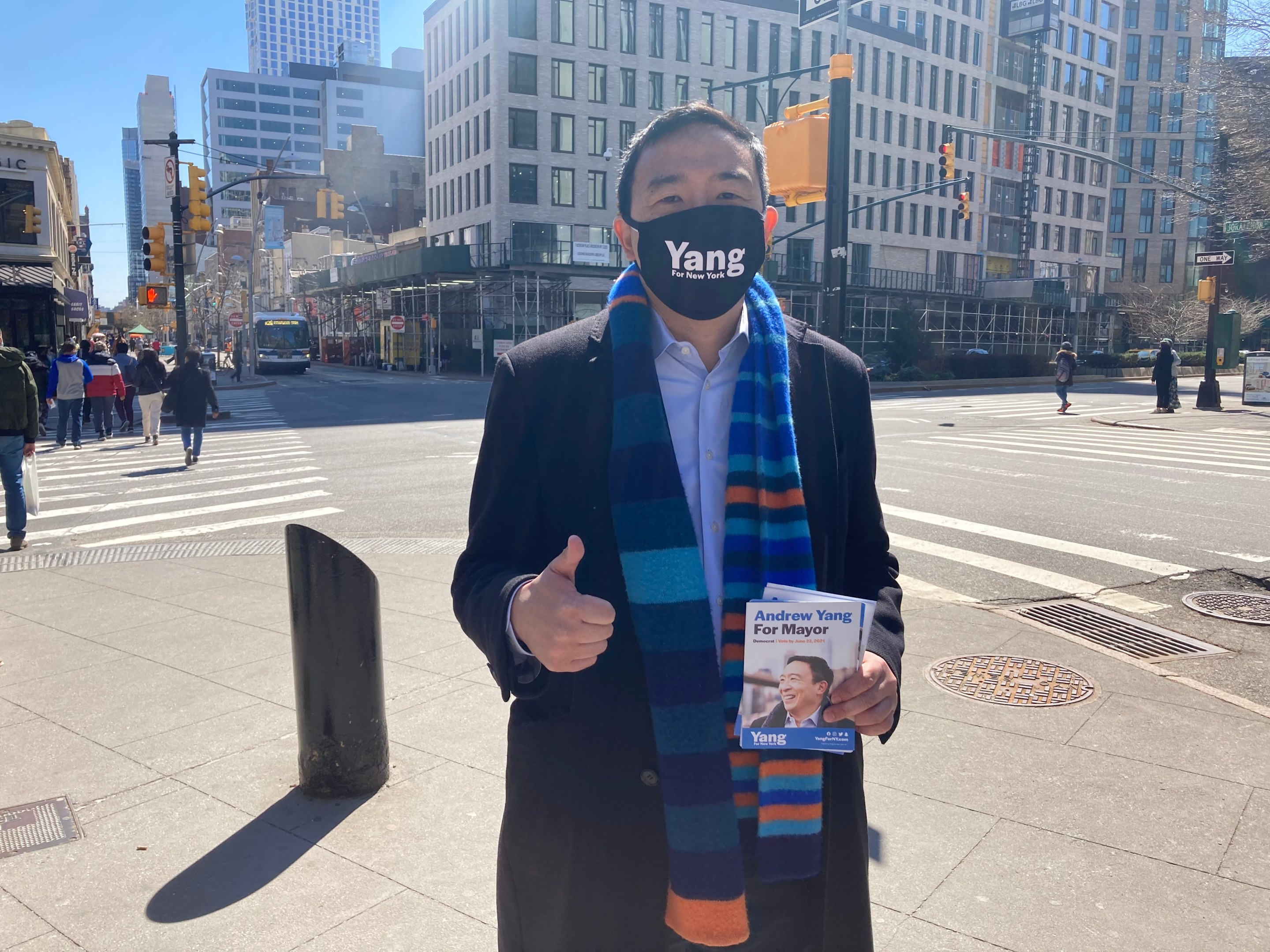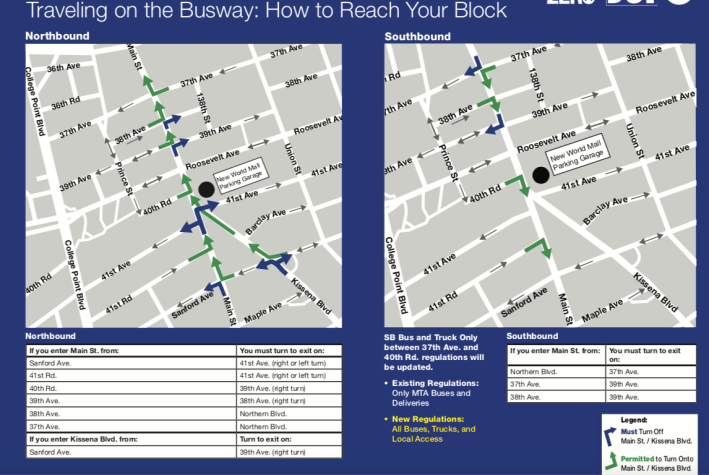Mayoral front runner Andrew Yang doubled down on his confusing opposition to the Flushing busway on Tuesday as Mayor de Blasio said the candidate is just plain wrong about the project, reaffirming the city's commitment to helping essential workers, many of whom ride the bus, get to where they're going faster.
"I remain committed to the busway in Flushing because, remember, this is about thousands and thousands of people, how they get around, to their jobs, pick up their kids from school. This is crucial," de Blasio said Tuesday during his daily press briefing, one day after Yang questioned the Main Street transit improvement. "Mass transit is our future and the busways have proven to be incredibly effective. We know there are always concerns when you make a change, but we have to be concerned with what is going to help the vast majority of people. And the vast majority of people take subways and buses. This is why busways are so popular and powerful."
Yang had made headlines at a mayoral forum in Flushing on Monday when he said the city should be open to "re-examining” the car-free route, which runs between Northern Boulevard and Sanford Avenue.
.@AndrewYang jumps in unbidden on the busway question and says city should be “open to re-examining it” including by allowing cars during certain hours and increasing parking in municipal lots.
— Erin Durkin (@erinmdurkin) March 29, 2021
On Tuesday, Yang, whose own website touts the success of 14th Street as a model example of the type of public transit he'd like to build throughout the city, reiterated that he does in fact support busways — just not necessarily that busway.
"I generally support busways throughout the city. The Flushing Main street busway I have heard numerous community complaints," said Yang during an unrelated campaign event in Brooklyn. "What I said was, look if this is a relatively recent change and there are some effects ... then we should be open to pluses and minuses on the change and I think that openness is appropriate, but generally speaking I'm very pro busways. I think they are very positive."
But Yang admitted that his opinion of the busway — which only started rolling on Jan. 19 after months of delays, including a lawsuit that momentarily stopped it in its tracks — was guided only by speaking to business owners and private car owners, who lamented their perceived inability to drop off their relatives at the curb for doctor's appointments, not any of the actual 150,000 daily commuters who ride one of the 11 buses that traverse Main Street.
"If you were to do a full inventory, then of course you would talk to people who are using mass transit, especially the bus in that case. You’d have to do a pretty thorough analysis of who is excited about the change and ya know who is less excited," said Yang. "I've heard numerous community complaints from people that have said that seniors have had trouble getting to their doctors who are on upper floors of those buildings, and prior to the busway they would get dropped off at the curb by their relatives, and now they struggle with that and there have been other issues."
But while the busway unfortunately can't help seniors access higher-level floors inside buildings, it does still allow people to drop off their relatives at the curb for a doctor's appointment, so long as they make the next possible turn off of the thoroughfare, according to DOT.
"All vehicles are allowed to enter the Busway for local access to each block along the corridor to access the curb and garages, but must make the next available right turn off the Busway; except at 41st Ave. where left turns off of the Busway are also permitted," a brochure of the pilot program says.
(Ironically, Yang's Tuesday press conference was held on the part of Fulton Street in Downtown Brooklyn that is limited to buses — a stretch that is among Brooklyn's busiest commercial strips, largely as a result of it being a busway and limited to private vehicular traffic.)
And even Yang said he was not surprised that bus speeds have already increased on Main Street in just the first few weeks after the busway went into effect, as Streetsblog reported. According to data from the MTA last month, buses had already started moving 8 to 38 percent faster, and are only expected to pick up speed even more once the automated bus cameras start issuing tickets in April, MTA’s bus boss Craig Cipriano said at the time.
“The key to an effective bus system is well-enforced bus priority,” said Cipriano. “We’re thrilled that the Main Street Busway is improving commutes for thousands of customers … and are excited to see the next busway implemented.”
As much as he praised his own busways, Mayor de Blasio declined to make news on Tuesday when pressed by Streetblog to announce his 2021 busway plans.
"I appreciate your energetic approach prompting me to make sudden news, but I am not going to be able to achieve that today," de Blasio said. "We are definitely looking at a lot more we're going to do with buses in the year 2021. Despite the challenges of pandemic, we got a lot done in 2020 expanding bus routes, expanding busways. This is also a really important part of our future. So, more to come on."







